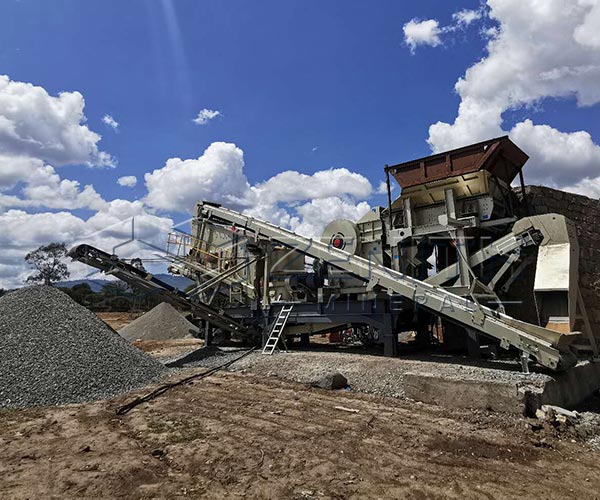
Stone crushers produce aggregates critical for road construction, including gravel for base layers, sand for asphalt, and crushed stone for concrete. Jaw crushers handle primary crushing, while cone and impact crushers refine materials for specific grades.
From highways to rural roads, crushers support diverse projects. Mobile crushers are particularly popular for their ability to process materials on-site, reducing transport costs and enhancing efficiency.
South Africa’s robust mining and construction sectors increase demand for crushers. Government-led infrastructure initiatives, like road expansions, further amplify the need for reliable crushing equipment.
Prices vary by crusher type. Jaw crushers, ideal for primary crushing, are generally cheaper than cone crushers, which excel in secondary and tertiary crushing. Advanced features like hydraulic systems or automation increase costs.
Higher-capacity machines, processing 100-1500 tons per hour, command premium prices due to robust construction and advanced components. For example, a high-capacity jaw crusher may cost significantly more than a smaller unit.
Many crushers are imported, incurring tariffs and shipping fees. South Africa’s import duties can add 10-15% to costs, while transportation from Asia or Europe may contribute another 15-20%.
Demand for construction materials drives prices upward, especially during infrastructure booms. Conversely, oversupply or economic slowdowns may lead to price reductions.
Widely used for primary crushing, jaw crushers with 50-100 tph capacity range from USD 150,000 to USD 250,000. Larger models (100-150 tph) may cost up to USD 400,000, depending on features and brand.
Suited for secondary crushing, cone crushers (100-150 tph) are priced between USD 280,000 and USD 380,000. Multi-cylinder models with higher efficiency can exceed USD 500,000.
Ideal for producing road aggregates, impact crushers (130-1500 tph) range from USD 200,000 to USD 600,000, reflecting their versatility and output capabilities.
Popular for on-site crushing, mobile crushers cost USD 120,000 to USD 550,000, with higher-end models offering advanced mobility and automation features.
Small rural road projects may only need a low-capacity jaw crusher, while major highways require high-capacity mobile or cone crushers to meet aggregate demands.
The hardness and moisture content of rocks affect crusher selection. For instance, impact crushers handle moist are better suited for softer materials, while cone crushers excel with harder rocks.
High-capacity machines may have higher maintenance costs, impacting long-term budgets. Choosing reliable brands with local support, like Zenith, reduces downtime.
South Africa’s environmental regulations require dust suppression and noise control, which may necessitate additional equipment, increasing overall costs.
Manufacturers and Dealers: Companies like Zenith offers customized solutions. Requesting quotes through their websites ensures tailored pricing based on project needs.
Auctions and Local Dealers: Auctions may offer cost-effective options for budget-conscious buyers.
We have jaw crushers, impact crushers, cone crushers, sand makers and so on.
Mon - Sun, 0:00 - 24:00
24h Online Service
© Zenith. All Rights Reserved. Designed by